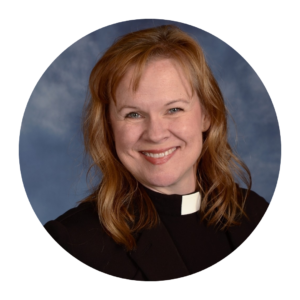Help For The Anxious Heart: Have you noticed the fear going around since March of 2020? Maybe even before that to 2016? How about from 9/11/01, or the Y2K scare of 2000, or before that?
The truth is, the psychological phenomenon of fear, and even its more subtle but pervasive friend, anxiety, have been with us always.
When I was a child in the 1970s, we were taught to duck and cover under our little school desks in the event that the USSR wanted to send a nuclear bomb our way. Before that, my parents discussed the fear of losing a loved one in Vietnam, and the blackouts during World War II. My grandparents spoke of the Great Depression and the Dustbowl. My ancestors might have mentioned the fear of the Civil War, or traveling across an ocean to get to America, or all the diseases and plagues along the way. I read and interpret the Bible for a living, and the people’s fear of the Roman Empire is every bit as intense as our fears today. Fear and anxiety are nothing new; they just change their label.

Transformative COURSES & WORKSHOPS that make integrating peaceful living, health and wellness easy, fun and affordable.
One of the most meaningful aspects I find in the Christian Bible is the constant encouragement to actively disengage from fear. It has been said, though I have not personally counted, that the Bible says something like “Do not be afraid” or “Fear not” or “Don’t worry” 365 times. That would be once for every day of the year.
We need the reminder that much.
Fear can become an idol if we let it. It can feel to us that if we attach our thoughts to a problem, analyze it thoroughly, stay vigilant, and watch out for warning signs, we will be safe. This is understandable if you remember that our evolutionary DNA tells us our fear of snakes, fire, warfare, etc. will keep us alive. It is hard, then, to see that our fears also sap our joy. It can be difficult to turn off the habitual analysis of all the world’s problems, or at least our own, and find a better way.
The difficulty of this is compounded for children who grow up in unstable, abusive, anxious, or neglectful households – which, it turns out – is many if not most of us at one level or other. Anxious children who teach themselves to be vigilant, noticing slight variations in their parents’ behavior or noticing any threat to personal security, can grow up to be chronically anxious adults. I know this from my own experience, as well as the many people I have counseled. Sometimes we grown-ups need to tell our inner children we are not in immanent danger anymore.
It is not enough, though, to tell ourselves not to be afraid. For anxious people, the task of putting aside fears feels threatening. If fears are deactivated, what is left for our protection?
In addition to turning from fear, one of the most touching things I read in the Bible is the encouragement to trust. Trust can enter the mental space that anxiety once occupied. Trust can be just as strong, just as certain, and just as powerful. The Old Testament of the Bible is written in Hebrew and the New Testament of the Bible is written in ancient Greek. There are several Hebrew biblical words for trust.
If they were written in the English alphabet, they would be chasah, betach, yachal, and aman. In Greek, the most common word used in the New Testament is (if it were in the English alphabet) pistis. This is conjugated to make several other words, with pistis as the root. The hearer and reader of the Bible is encouraged hundreds of times to choose to trust, to lean in to trust, to replace fear and anxiety with trust, and to learn from the model stories of those who have done just that.
Pistis is often translated in the Bible as “believe.” This is probably because the connotation is that the hearer/reader is asked not to just have a mild trust, but a full-force belief in the power of God. One example of this is John 3:16, a well known verse that says, “God so loved the world that he sent his only son, that whosoever believes in him shall not perish but have everlasting life.” That word translated here as “believes” is pisteuon, a conjugation of “pistis.” This verse is most certainly not intended for people to read and say, “I believe, and they don’t.” Rather, this is intended for people to ask themselves what their own “pistis” is looking like these days.
Belief can be cheap. I believe in God, but do I trust God? Not always. I prefer to read the scripture this way: “God so loved the world that he sent his only son, that whosoever trusts in him shall not perish but have everlasting life.”
Let’s face it – when I give in to my anxieties and don’t trust in God, in myself, in the cosmos (cosmon, the “world” in that scripture) then I do not have richness of life. But those days and moments when I do make the choice to trust, life opens up for me and it is everlasting and eternal. I can feel it in that moment. So can you. You know the difference between anxiety and trust. You have felt them both many, many times. You know how one steals your joy, your peace, your life, and the other gives it all in great abundance.
The Bible asks us to “choose life.” I realize I am a Christian pastor, and obviously not everyone follows this spiritual path. However, everyone can benefit from this practical wisdom. We can make the life-giving and life-affirming choice day by day, even minute by minute, to lay down the anxiety that pervades our society, our memories, and our own minds. We can question the incessant narrative that life is scary and that we must live in a state of constant distrust. We can open up to trusting – in this life, in love, in the goodwill of others, and in the Ground of All Being. From there, we will see our life become blessed indeed.
I wish you days of trust, and the resulting peace and joy.

STEPHANIE LAPE
Stephanie Lape is a pastor in the Evangelical Lutheran Church in America (ELCA).
She holds a Master of Arts degree in Transpersonal Psychology (the psychology of religious experience) from the Institute of Transpersonal Psychology, and a Master of Divinity degree from Luther Seminary. A long-time professor of comparative religions and former campus minister, she now serves as pastor at Eden Lutheran Church in Riverside, California.
Stephanie speaks and teaches on matters of spiritual and psychological development, biblical studies, the enneagram personality tool, and comparative religions. She is an active advocate for interfaith and ecumenical studies. She has taught classes on major religious movements in churches, schools, and city programs, while also leading tours and guest speaking at mosques, synagogues, and temples. Stephanie is honored to be a speaker at the 2021 and 2023 Parliament of the World’s Religions.
She also loves to write. Stephanie is a contributing author for Living Lutheran Magazine and author of Beckoned: Hearing God’s Call to Deeper Faith, which is both a travelogue of her own winding spiritual journey, as well as a guide to help people discover their own path. She lives with her husband and two children in Southern California.




2 Responses
This is truly inspiring and calming. Thank you Pastor Stephanie for sharing your wisdom with us!
Thank you, Jennifer. It’s a pleasure to write for PLW.